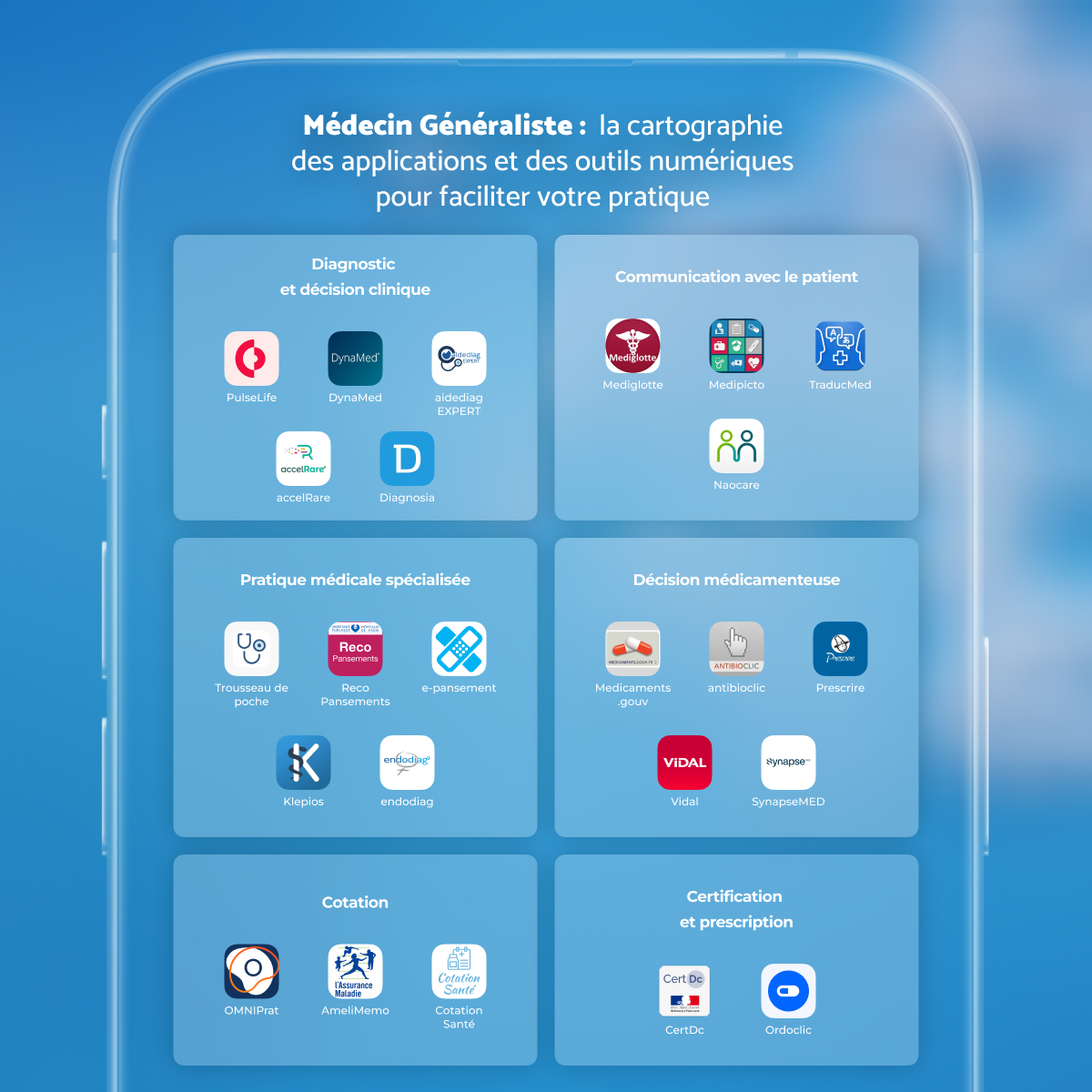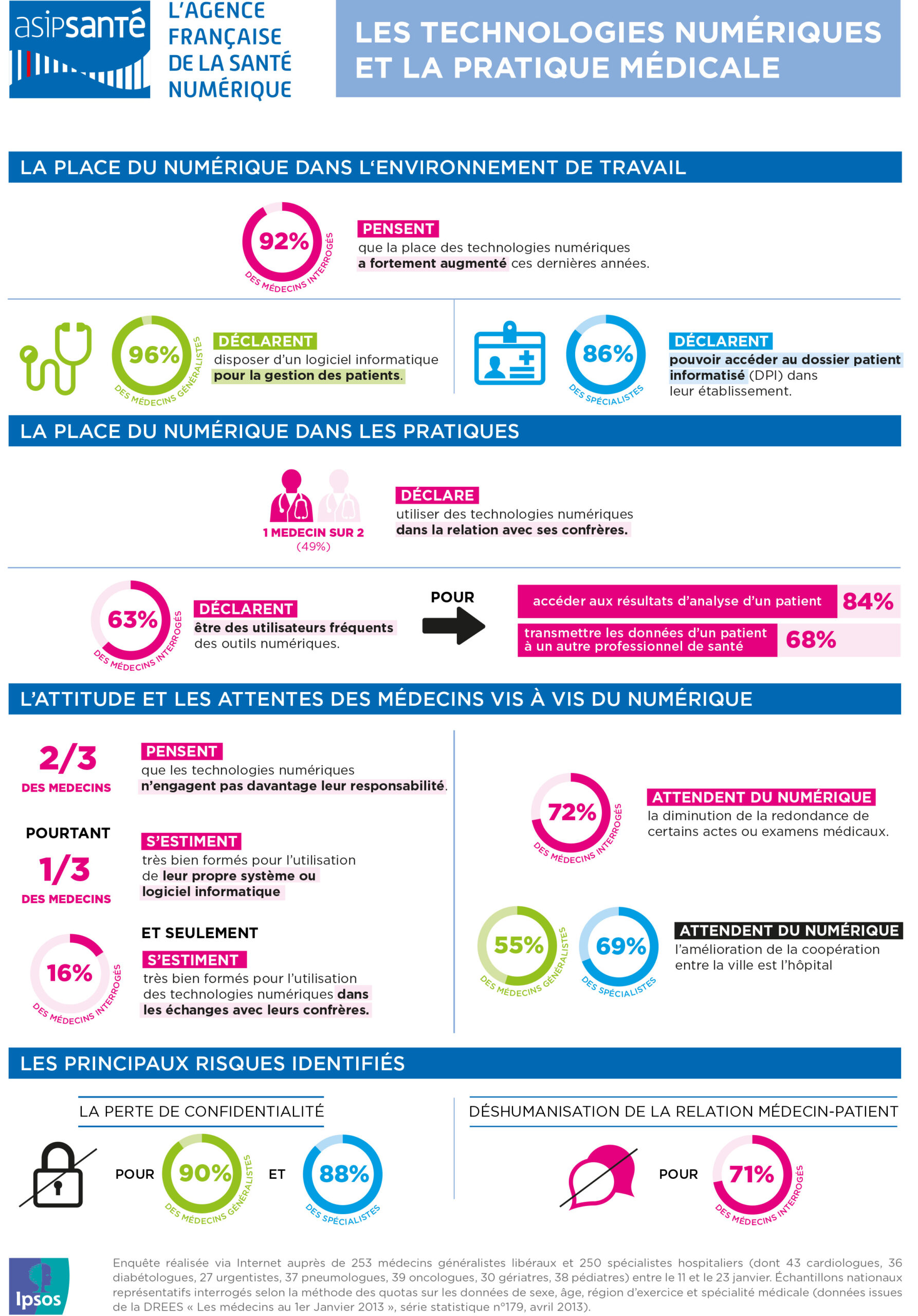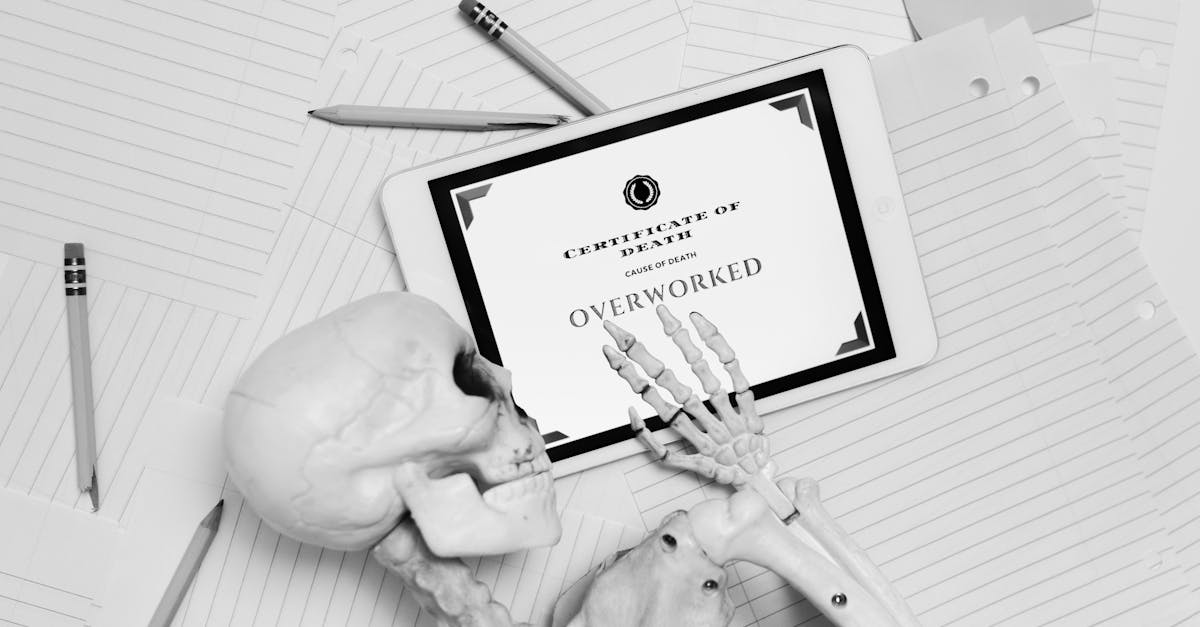Digital transformation is redefining general medicine, bringing a multitude of opportunities and challenges for healthcare professionals. The emergence of digital technologies, such as telemedicine and artificial intelligence, offers innovative perspectives to improve the quality of care, thus facilitating diagnosis and the medical follow-up. However, this development also raises concerns regarding the confidentiality patient data and dematerialization interactions between doctors and patients, thus changing the nature of the healthcare relationship. In this context, it is essential to analyze the impact of new technologies on the practice of general medicine.
|
IN BRIEF
|
Advances in the field of digital technologies actively transform the practice of general medicine, offering tools and solutions that improve the quality of care. These innovations range from telemedicine to analysis by artificial intelligence, thereby changing the way doctors interact with their patients and manage their practices.
Evolution of medical practice thanks to new technologies
The development of medical applications and information systems has led to more efficient patient management. In fact, 96% of general practitioners use software to optimize the management and organization of their work. These tools allow a better documentation and more rigorous monitoring of medical records.
Telemedicine: a new horizon for medical consultation
There telemedicine has emerged as a major asset in the current digital health discourse. It facilitates access to care, particularly for patients living in rural or isolated areas. In addition, it responds to a growing demand for remote consultations, thereby reducing the need for physical travel. Doctors can thus expand their practice while guaranteeing patient-doctor relationship adapted, even from a distance.
Ethical and professional concerns
Despite the advantages, concerns remain among doctors regarding data confidentiality and the dehumanization of the relationship with patients. In fact, 90% of general practitioners report fears relating to protection of personal data, and 71% wonder about the impact of these technologies on empathy and human connection during consultations. Furthermore, 55% of practitioners expect the use of technologies to improve their daily lives without compromising their relationship with patients.
The growing role of artificial intelligence
The introduction of artificial intelligence in the medical sector is also transforming the diagnosis and treatment of patients. Algorithms capable of analyzing medical images or predicting clinical developments enrich the decision-making capabilities of doctors. These tools digital diagnosis make it possible to detect pathologies more quickly and with increased precision, thus supporting healthcare professionals in their daily practice.
A promising future for digital health
The potential of new technologies in the healthcare sector is immense. By combining advances in biotechnology, robotics and computer science, the medical profession is moving towards more adherent care, personalized and efficient. General practitioners must therefore adapt and evolve with these transformations to continue to provide quality care, while mastering new ethical and technical challenges.
To delve deeper into the subject, additional studies and resources are available through these links: DUMAS, Mankaia, Public Life, Science Direct, medtech-une-vitrine-dinnovation-pour-la-region-de-varsovie/”>Global Health.

Summary
Advances in digital technologies have transformed the landscape of general medicine, offering innovative solutions to improve the quality of care. These technologies, ranging from telemedicine to artificial intelligence, promise more effective interactions between doctors and their patients. However, their integration into medical practice raises questions regarding the confidentiality data, human dexterity in the doctor-patient relationship, and the challenges of adapting health professionals to these new tools.
The advantages of digital technologies
The adoption of digital technologies in medical practice allows you to renew the experience of care. Telemedicine, for example, facilitates access to health care for patients who are geographically distant or have reduced mobility. Additionally, using medical apps allows doctors to manage their patients more effectively. According to a study, 61% of doctors using a smartphone integrate health applications into their daily practice, which contributes to a better support.
Privacy Challenges
Despite these advantages, 90% of general practitioners express concerns about the protection of personal data patients. Collecting, storing and sharing sensitive information through digital platforms increases the risk of privacy breaches. It therefore becomes imperative to establish robust systems to ensure data security and reassure patients, in order to maintain the trust essential to the doctor-patient relationship.
Dehumanization of the doctor-patient relationship
Another major concern cited by 71% of doctors is the dehumanization care due to too much dependence on new technologies. Although these provide practical benefits, it is essential not to neglect the human aspect of care. Doctors should strive to maintain an empathetic connection with their patients, avoiding letting technology interfere with communication and understanding of patients’ emotional and psychological needs.
Continuing training and adaptation of doctors
To optimize the use of new technologies, continuing education proves necessary. The impact of new technologies on medical practice requires that physicians be comfortable with these tools and understand how to integrate them into their daily routine. Around 96% of GPs report having access to management software, but it is crucial that they receive adequate support to take advantage of these resources.
Implication of artificial intelligence
L’artificial intelligence (AI) has also emerged as a crucial lever in medical diagnostics. By analyzing medical images and patient data, it can improve the accuracy of diagnoses. However, its use must be regulated so as not to replace the clinical judgment of doctors. Collaboration between humans and AI should be encouraged, in order to maximize the benefit of both in the care pathway.
Technological advances in the medical field offer considerable potential to improve the quality of care. However, the challenges of confidentiality, from the dehumanization of the patient-doctor relationship and the adaptation of professionals must be taken into account. By ensuring adequate training and strict regulations, general medicine can make the most of these innovations, while preserving the human values which are at the heart of care.

The advent of digital technologies transformed the practice of general medicine, bringing a host of changes to improve patient care. Indeed, the integration of digital solutions, such as telemedicine and the medical applications, allows more efficient management of consultations, offering unprecedented flexibility in patient monitoring. General practitioners can now reach a larger number of patients and provide continuous monitoring, even remotely. This development is essential in the current health context, where access to care must be facilitated.
However, the integration of digital technology raises significant concerns, particularly in terms of confidentiality data. Approximately 90% GPs are concerned about the security of their patients’ personal information, highlighting the need for robust data protection protocols. The fears of dematerialization of the doctor-patient relationship also persist, with 71% practitioners fearing that this development will harm the human aspect of care. Therefore, it becomes essential to balance the use of technologies with quality human contact.
While these concerns are legitimate, it is crucial to recognize that new technologies also offer unprecedented opportunities for improve the quality of care. Artificial intelligence, for example, is playing an increasingly important role in medical diagnosis, enabling faster and more accurate decision-making. Likewise, the training of doctors must evolve to understand these digital tools, strengthen their confidence and fully exploit their advantages.
In short, although digital technologies bring significant challenges, they also represent a major advance in the field of medicine. Careful and thoughtful adoption of these tools could well redefine the future of general practice.












